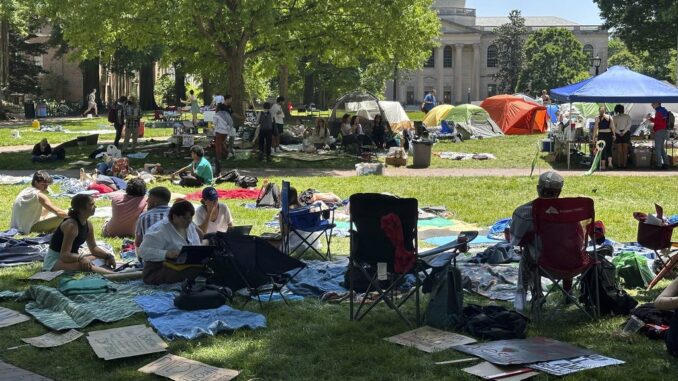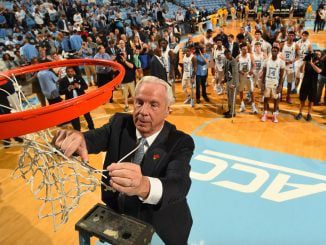
We’ve seen and heard a lot in recent weeks about how the anti-Israel encampments on college campuses across the country have gone south after administrators essentially allowed the agitators to run the show.
Columbia University in New York City is one such place, where protesters went from camping on school grounds and harassing/intimidating Jewish students to forcibly occupying a school building.
Even after the building was cleared by the NYPD, protesters scored another victory when it was announced that the main campus commencement ceremony would be canceled.
Further, professors were given the option of making final exams optional or not having an exam at all. Those who were administering final exams were encouraged to not let the grade on the exam negatively impact their final grade for the course.
On some North Carolina campuses, things have been much different.
At UNC Chapel Hill, after an encampment was cleared and arrests were made, interim Chancellor Lee Roberts personally walked to the campus flag pole and reraised the American flag in front of demonstrators after the Palestinian one that had previously been raised by the protesters was taken down.
In an interview with WRAL shortly after, Roberts said, “That flag will stay there as long as I am chancellor.”
Faculty members carrying “Justice in Palestine” signs held a press conference a few days later, alleging the free speech rights of the anti-Israel demonstrators had been violated when the encampment was cleared and later, when agitators continued to make trouble by the flag pole.
What those faculty members left out, of course, was exactly why the arrests were made and the protest camp was cleared in the first place. Few people reading this will be surprised to learn that the “peaceful protesters” the media keeps telling us about were not, in fact, “peaceful.”
Here was the statement from UNC Chapel Hill administrators that went out on May 3, well before that faculty press conference was held:
“In recent days, members of this group and others have caused damage to Polk Place, broken into academic buildings after hours, propped doors open to locked buildings, torn down barricades, pounded on windows and attempted to push through officers to forcibly enter South Building, hit police and other vehicles, thrown furniture in front of police vehicles injuring officers, entered classrooms during finals to cause disruptions, taken down the American flag flying over Polk Place twice, and thrown water bottles and fluids at University workers, police and administrators.
“Most troubling, we have learned of an arson threat against a Jewish fraternity building and seen multiple instances of clearly antisemitic messages and threats in buildings.”
A similar situation unfolded at UNC Charlotte, where administrators said that “various concerning items were discovered (at the cleared encampment), including knives, box cutters, a collection of baseball-sized rocks, and a mattress that was used to collect and store feces.”
Even after the encampment was removed by police, UNCC observed that protesters continued to create problems for other students on the campus.
They “chose to march across campus during final exams, using megaphones near academic buildings and impeding traffic on public streets, without regard to any disruption they caused.”
At the end of their statement, UNCC wrote that they “will continue to take all necessary steps to preserve the rights of those not protesting to do their work and pursue their education.”
And that is exactly how these protests should be handled, not just here in N.C. but elsewhere.
Students have a right to protest, but when they cross certain lines, administrators have an obligation to step in. It’s just as simple as that.
North Carolina native Stacey Matthews has also written under the pseudonym Sister Toldjah and is a media analyst and regular contributor to RedState and Legal Insurrection.



